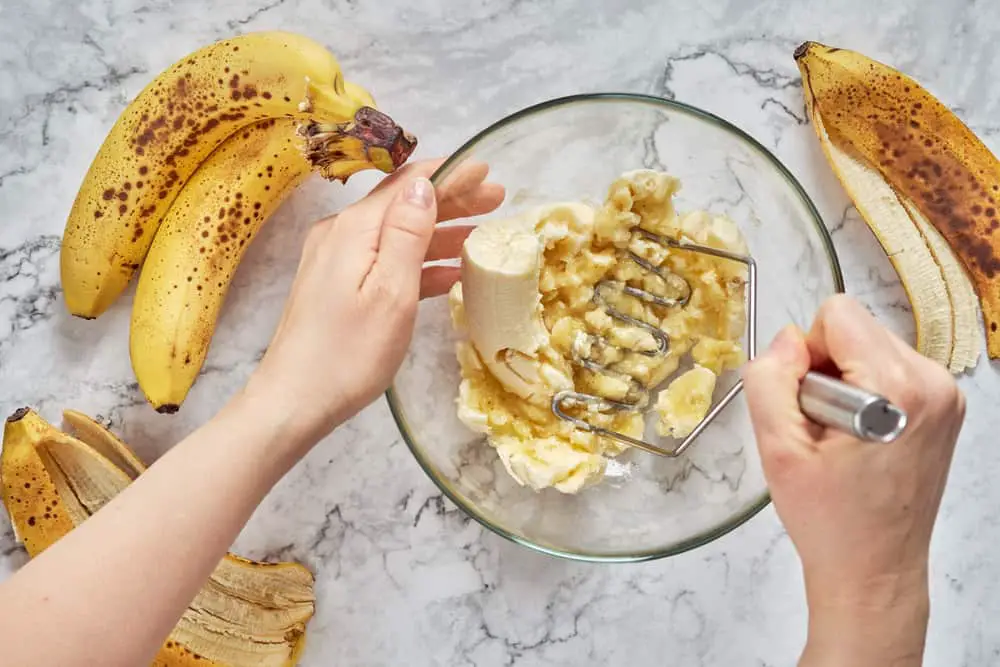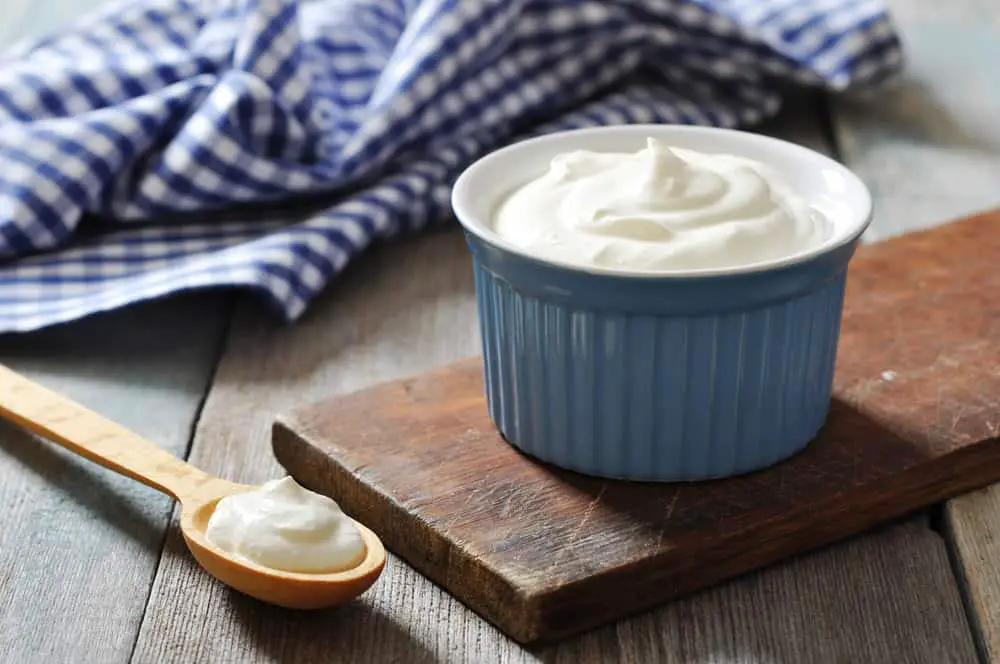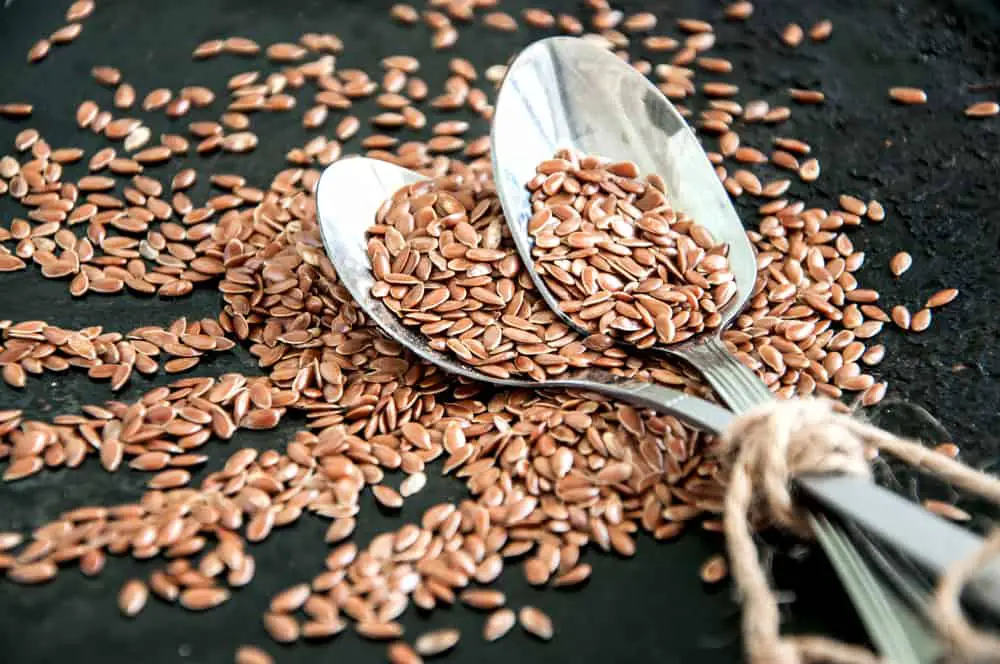We can all agree that eggs are an integral ingredient in baking, for a good reason. They are readily available for many baking enthusiasts.
Despite their popularity, eggs aren’t the be-all-and-end-all without which you couldn’t make a good cake and eat it, too. You can still get the best results in baking without using any eggs. But what can you substitute for eggs in cake mix? And why?
Reasons to Substitute Eggs in Cake Mix
Baking enthusiasts replace eggs in their cake mix for several reasons, which usually vary from one person to another. Below are some reasons you might have to replace eggs in your baking process.
- You could simply run out of eggs in the house and be unable to go for more immediately.
- You may have health complications caused by eggs, such as rashes or inflammation caused by an egg allergy.
- Your religion or culture may prohibit the consumption of whole eggs, processed egg products, powdered egg replacer, and egg-containing food items.
- Your diet may be restricted to no eggs and egg-containing foods, by your own will or as advised by your doctor.
- You may be making a deliberate decision to avoid eggs in your cake mix, for example, out of the need to experiment with other food items.
Is There Any Harm in Substituting Eggs in Cake Mix?
There’s no harm in using egg-free baking recipes. Your cake will still be healthy and fit for human consumption. It will, however, be slightly different in texture and taste, depending on what you use as the egg replacer.
How Much of the Substitute Do You Need To Replace Eggs?
The average chicken egg has a volume of about two ounces, 57 grams, four tablespoons, or a quarter cup. To use the right amount of substitute, you need to add the same volume of the substitute as that of the eggs.
For example, if your recipe requires two eggs, that’s about four ounces. Your egg substitute will have to be four ounces to ensure you strike a balance between the egg replacement and the other ingredients.
Readily Available Whole Egg Substitutes for Cake Baking
The best egg substitute to use depends on its intended purpose in the recipe. You could use it to enhance the flavor of the cake, as a binder, to add nutrients, or to moisturize the cake.
Here are some ideal substitutes for eggs in cake mix.
1. Ripe Banana

When replacing eggs with ripe bananas in your cake mix, the riper they are, the better your cake will be.
Bananas are an excellent vegan replacement for whole eggs. They work best if your recipe doesn’t need aerating.
The bananas don’t have to be so overly ripe that they have turned black, but riper bananas are easier to mash. They also have more moisture.
Ripe bananas turn the cake a lovely brown color and enrich the flavor. They also have high nutritional value, adding vitamin C and potassium to your cake. Ripe bananas also help with digestion.
To replace one egg in your cake mix, you’ll need roughly half a small banana to make a quarter cup of mashed banana.
Remember, your baked cake will have a lingering banana flavor. You can mask the banana flavor, depending on the type of cake you are making.
For example, if you are baking a chocolate cake, the chocolate and cocoa flavors will overcome the banana flavor. You can also add choice extracts like caramel or citrus to enhance your desired flavor.
2. Applesauce
A quarter cup of unsweetened applesauce can replace each egg in your cake mix, but using more than one cup in a cake will make its texture rubbery. You shouldn’t replace four eggs with applesauce in a single cake.
Applesauce, preferably unsweetened applesauce, smooths the flavor of your cake. It also moistens the batter, prevents the cake from drying out during baking, and will make your batter a bit denser, which is a good thing.
If you use sweetened or flavored applesauce, use less sweetener or sugar in the cake mix.
The upside of applesauce as a whole egg substitute is that it marries well with your leavening agent, such as baking powder. This marriage prevents the sauce from weighing down the batter. The batter also stays well-aerated.
3. Yogurt

Plain yogurt or Greek yogurt has a smooth texture and is ideal for replacing eggs in a cake mix. It’s a good source of healthy protein for a nutrient-rich cake.
Be aware that substituting plain yogurt may make your cake a bit denser because it doesn’t act as a leavening agent.
One egg is replaceable with a quarter cup of plain yogurt.
Since yogurt is water-based, you might have to bake your cake a little longer because it will be wetter.
If Greek yogurt or plain yogurt is unavailable, you can use a quarter cup of buttermilk to replace each egg in the mix.
Making buttermilk at home is easy as you only need to mix milk with some vinegar.
Use buttermilk in moderation since its slight acidity may cause chemical reactions with some other ingredients, disrupting the cake’s texture.
Lactose-intolerant cake enthusiasts can use coconut yogurt or soy yogurt instead of dairy-based yogurt to make a moist cake.
4. A Mixture of Baking Powder, Oil, and Water
Both eggs and baking powder are used as leavening agents when baking a cake.
If you don’t have eggs or don’t want to use them, you can use baking powder in their place. You’ll have to add some oil and a few tablespoons of water to compensate for the fat and water content the egg would have provided.
Mix two tablespoons of baking powder, one tablespoon of vegetable cooking oil, and two tablespoons of water to replace one egg.
The good thing with this mixture is that it won’t change the taste of your cake because the added replacers are tasteless.
5. Soy Milk
Soy milk is usually available as tofu after it has been condensed and made into solid blocks.
The moisture or water content of the condensed soy milk varies. Silken tofu has a higher moisture content than regular tofu, and thus its consistency is softer.
Replace one whole egg with a quarter cup of silken tofu puree, which you can make by blending the tofu in a food processor to achieve a smooth puree with no lumps.
The advantage of silken tofu is that it is relatively flavorless, meaning it blends in with other cake batter ingredients. It also helps achieve a solid cake structure.
The downside to condensed soy milk is that you can’t use it in your cake as a leavening agent.
6. Garbanzo Bean Flour
Also called chickpea flour, besan, or gram flour, garbanzo bean flour is made from garbanzo beans. The gluten-free white-chickpea variety flour is rich in dietary fiber, protein, and starch.
Garbanzo bean flour acts as a leavening agent and binder when mixed with water, making it an excellent substitute for eggs.
Replace one egg with a thick, creamy mixture of three tablespoons of garbanzo bean flour and three tablespoons of water.
If you want the egg substitute to be thicker, you can use almond milk instead of water.
Garbanzo bean flour adds a tender but sturdy texture to many baked goods and cakes.
You can make garbanzo bean flour at home or buy it readymade from a store close to you.
7. A Mixture of Apple Cider Vinegar and Baking Powder
If you want to make an eggless cake with some extra fluffiness and lift, you can use a mix of baking powder and apple cider vinegar.
It’s best to use this mixture if you only want to replace one egg in a cake, whereby you mix one tablespoon of apple cider vinegar with one tablespoon of baking soda.
You can use one tablespoon of distilled vinegar instead of apple cider vinegar. You can also use lemon juice to replace the vinegar, but you’ll need two tablespoons of it.
Mixing the vinegar and baking soda produces an immediate reaction that causes them to foam up, which provides enough leavening for the cake. The mixture leaves a subtle taste in the cake.
Vegan Egg Substitutes for Cake Mix
If you are on a vegan diet, there are other options you can use to replace eggs in your cake mix to avoid adding too much sugar. Flax and chia eggs are great substitutes, but you might have to prepare them separately first.
8. Flax Eggs

You can make a flax egg by soaking one tablespoon of finely ground flax seeds in three tablespoons of a choice liquid, such as water. Leave the mixture for five to seven minutes to achieve an egg-like consistency.
Grinding flax seeds removes their outer shell to release the gel-like component inside them. This substance mixes with water or other vegan-friendly liquids to achieve a slimy consistency similar to that of an egg.
The flax egg binds your cake together, with the natural flax seed fat replacing the fat in an egg yolk.
For the best results, avoid using flax eggs to substitute more than one egg in a cake. Doing so will make the texture unappealing and disrupt the consistency of the cake.
If you don’t have a coffee grinder or enough time to grind the flax seeds, you can buy a ready-to-use flax meal.
The downside to flax eggs is that your cake may have a nuttier, earthy flavor. You can mask the taste with extracts and essences, but you might not succeed fully.
9. Chia Eggs
The preparation process of a chia egg is very much like that of a flax egg.
You’ll need to mix one tablespoon of finely ground chia seeds with 2½ tablespoons of water. Leave the mixture for five to seven minutes to achieve a slimy consistency and swell well before adding it to the batter.
Like flax seeds, chia seeds are rich in fiber and omega-3 fatty acids. These will add nutritional value to your cake.
The downside to using flax and chia eggs is that you can’t use them as a leavening agent for cakes that require beaten egg whites to create volume, such as chocolate-based and chiffon cakes.
Avoid using chia eggs as a substitute for more than two eggs in your cake mix for the best results.
Happy eggless cake baking!
